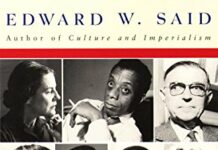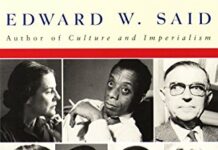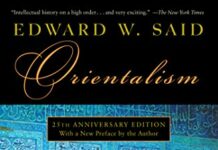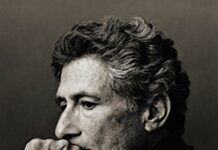
Ebook Info
- Published: 1997
- Number of pages: 272 pages
- Format: PDF
- File Size: 3.21 MB
- Authors: Edward W. Said
Description
In this classic work, now updated, the author of Culture and Imperialism reveals the hidden agendas and distortions of fact that underlie even the most “objective” coverage of the Islamic world.From the Iranian hostage crisis through the Gulf War and the bombing of the World Trade Center, the American news media have portrayed “Islam” as a monolithic entity, synonymous with terrorism and religious hysteria. At the same time, Islamic countries use “Islam” to justify unrepresentative and often repressive regimes. Combining political commentary with literary criticism, Covering Islam continues Edward Said’s lifelong investigation of the ways in which language not only describes but also defines political reality.
User’s Reviews
Editorial Reviews: Review “No one stuyding the relations between the West and the decolonizing world can ignore Mr. Said’s work.” –The New York Times Book Review”Edward Said is a brilliant and unique amalgam of scholar, aesthete, and political activist. . . . He challenges and stimulates our thinking in every area.” –Washington Post Book World From the Inside Flap From the Iranian hostage crisis through the Gulf War and the bombing of the World Trade Center, the American news media have portrayed “Islam” as a monolithic entity, synonymous with terrorism and religious hysteria. In this classic work, now updated, the author of Culture and Imperialism reveals the hidden agendas and distortions of fact that underlie even the most “objective” coverage of the Islamic world. From the Back Cover In this landmark work, for which he has written a new Introduction, one of our foremost public thinkers examines to origins and repercussions of the media’s monolithic images of Islam. Combining political commentary with literary criticism, Edward Said reveals the hidden assumptions and distortions of fact that underlie even the most “objective” coverage of the Islamic world. In so doing, Covering Islam continues Said’s lifelong investigation of the ways in which language not only describes but also defines political reality. About the Author Edward W. Said was born in 1935 in Jerusalem, raised in Jerusalem and Cairo, and educated in the United States, where he attended Princeton (B.A. 1957) and Harvard (M.A. 1960; Ph.D. 1964). In 1963, he began teaching at Columbia University, where he was University Professor of English and Comparative Literature. He died in 2003 in New York City.He is the author of twenty-two books which have been translated into 35 languages, including Orientalism (1978); The Question of Palestine (1979); Covering Islam (1980); The World, the Text, and the Critic (1983); Culture and Imperialism (1993); Peace and Its Discontents: Essays on Palestine and the Middle East Peace Process (1996); and Out of Place: A Memoir (1999). Besides his academic work, he wrote a twice-monthly column for Al-Hayat and Al-Ahram; was a regular contributor to newspapers in Europe, Asia, and the Middle East; and was the music critic for The Nation. Read more
Reviews from Amazon users which were colected at the time this book was published on the website:
⭐This is an important book. Actually, more important today then when it was first published in 1981. My copy is the updated ’97 edition, however. It’s more important today because it directly addresses our current voguish blather(thanks for the borrow, Arthur jr) concerning the predominance of fake news in a forthright fashion well before the existence of Breitbart, HuffPo, or even the Internet. The focus of media fraud in this book is not on the presidential election, or even American politics, but rather the American media’s foreign coverage on all things Islamic. Said states that mostly all of the news coverage concerning “Islam” has been quite thoroughly, and often quite intentionally, fake. Said unpacks why the western media usually reports Islam the way it does, why it(Islam) is otherwise completely ignored as news worthy, and how most of the material offered concerning it that’s fit to mislead is picked up and propagated by many newspapers of the finest reputation and all major television news networks of that time. Said states current(70s, 80s, 90s) media coverage of Islam is mostly restricted to elucidating events of crisis only, typically just as it may directly relate to western interests. Selecting only times of crisis for exploring Middle Eastern society reenforces an image of a land with only inherent and unresolvable problems. As the Islamic religion is inextricably attached onto this real estate and its nettlesome problems, an unfortunate trinity of negativity takes root from the so-called western perspective. An old stock of myths, prejudices, and self-serving stereotypes find vigorous, if not rigorous, use in constructing a grand news narrative which makes certain to affix “hero” and “villain” statuses strategically, upon the United States and Islam respectively. Said uses the Iranian revolution(again, this was written and updated before 9/11) as his primary example of how the news media constructs and promulgates false news. Importance as to what’s added(the stereotyping of Muslims as all violent religious nuts against education, modernism and technology) is only second in importance to what’s excluded(the Shah’s oppressive regime that flouted human rights, engaged in extensive social engineering, and attempted to subvert and destroy all connections with past traditional culture). Said alternates between errors committed by the western media out of prejudicial ignorance(explaining present events with jaundiced interpretations of values and history from a distant past, or an inexcusable inability to speak the language, or a lack of knowledge as to what is actually happening in the society reported on), and the more blatant pandering to businesses, government policy, or immediate commercial interests. Oil pops up for Said as a nasty bogey bringing upon the Middle East western harassment and subjugation. Said recognizes limitations placed upon the commercial media by the competence of its audience, also those placed by interests who pay for advertising space, or the bare government pressure exercised on media and research institutions alike. Specialists find their employment may interfere with an ability to simply report “truth” without making expected accommodations to vested interests in a public forum. Those who attempt to do so despite obstacles can at best count on substantial frustration as reward for their efforts. I remember watching a specialist on Middle East terrorism practically pull out his hair as he repeatedly tried to explain how El Qaeda might have had nothing to do with Benazir Bhutto’s assassination. The CNN interviewer not only couldn’t follow the complexity of the various groups perhaps involved in potential insurrectionary activities in Pakistan at the time, she couldn’t bring herself not to use the label El Qaeda, despite persistent corrections. Reduction of a complicated problem to its simplest explanation is a very common error, according to Said. Said would ask that journalists and reporters maintain a critical stance against any possible myth purveying, conscious or otherwise. Said provides examples of some journalists he considers to be knowledgeable, critical, and objective. Two Frenchman, Maxime Rodinson & Eric Rouleau, and one American, I.F. Stone, are singled out for special praise. The first two were communists, while the latter flirted with it for much of his life. One can hardly dispute that their perspective on the Iranian revolution would be different than, say, Ted Koppel’s. Though one could retort that their smuggled assumptions were just more palatable to the ardent anti-capitalist Said. Another intriguing feature to Said’s commentary on western perceptions of Islam is his abject disdain for the west’s consistent tendency for reducing Islamic people and events into negative ontological symbols. Said would claim this dehumanizes authentic subjects. Said also points in turn to the ontological symbolism of the Embassy hostages for the new Iranian Republic while acknowledging their basic innocence. At times, this feels like an offsetting game that really reduces into standard power politics. At times, it feels as if Said is really only upset at the amount of media power the west has at its command. If so, it reminded this reader nothing is more off-putting than a whiny Nietzschean. Still, Said does accurately hit his target when he states that quantity of news coverage indicates little to nothing of its quality. Reporting necessarily involves interpretation of facts. This process is never neutral. Because of this reality, Said warns us that we must all be aware of any potential prejudices, biases, deceptions, and even outright fraud, not only in our news consumption, but in our personal judgement. Said accuses the American media of mostly perpetrating the latter when it informed an hungry American public looking for answers during the hostage crises that insane zealots beyond any reasonable discourse were only ones available to blame. This was a narrative that was all too easy to write up, which also utilized convenient, though bigoted, sources from past and present, but was also often misleadingly simplistic, uninformative, and frequently false.Because of this simplistic media assessment and the following public judgement, the media on the whole dropped Iran as a focus of scrutiny after the hostages were released, seldom acknowledging it again outside the briefest mention as a state still in support of terrorism until the beginning of the twenty-first century. The media mostly failed to convey an appropriately intricate and informed examination of the events leading to, during, and after the Iranian revolution, despite an apparent professional journalistic obligation to do so on behalf of its public. Most hardly cared, especially after the hostages were released; though Said did and made it the topic of arguably his best book. Sadly, an assault on America’s “fake news industry” would have to wait until it finally inflicted injuries much, much closer to home. In fact, inside its very TV parlor…
⭐In Covering Islam, Edward W. Said makes some vitally important points that remind us that our relationship with many countries (and not just in the countries/cultures/peoples who are Arabic or Islamic or in the Middle East) is informed by a media that does not always do justice to the people they cover — in many cases, the media generalizes and demonizes. Making one of the most important points in the book, Said reminds us that Islam (like “Christendom” or “the West” or any broad cultural category) is not a monolithic homogeneous structure, but that many journalists, pundits, spokespeople, and citizens see and portray it as such.Said cites many examples of journalists (and academics) who fall into lazy habits when looking at and writing these cultures. Unfortunately, it seemed to me that Said makes many generalizations himself, about American media and journalists (although, to be fair, he does give some examples in the last chapter of academics and writers who he believes have a more broad and insightful and accurate viewpoint) which made it harder for me to stay engaged with the book.Finally, I wanted to know his solutions and suggestions, not just the problem. If everything an American journalist or adademic touches in a country such as Iran or Iraq or Afghanistan is tainted by post-colonialism and oil and government, how can the average person learn about that part of the world in a genuine manner? What information is trustworthy? Said has told us the problem, or part of it, but did not seem, in this book anyway, to offer solutions.
⭐Edward Said so eloquently gives us insight into the inherent prejudice in the so called free Western press. He uses examples to bring home the blatant chauvinism, sheer ignorance, arrogance and cultural bias that even today poignantly exist in the international media . This book is an essential study for westerners interested in the Arab-Western interface. His untimely passing left a chasm in a very topical area. Whose measured and articulate prose will rein in the five minute assessments of journalists hell bent on their sensationalist verbal garbage, and often based on the stereotypical diatribe of the biased Western writers of earlier decades? Edward Said’s articulate exposition and intellectual vigour in this tome left me with a lasting impression. I cannot wait to read and mull over more of his well-argued and strongly evidenced writings.
⭐This book tells ALL about our media prejudices and the shortcomings of our journalists, writers, intellectuals, academics, etc., when it comes to Islam, Arabs and the Middle East. It is a great analytical essay about false propaganda and the wrong views dispersed about the Middle East. YES there are political problems in the Middle East but which part of the world doesn’t have them? If it wasn’t for the oil, the Middle East would have been without turmoil and left alone for the last 100 years to manage its own destiny, without constant wars and political interventions. Edward Said does it again: clear, pure truth-telling!
⭐some interesting info
⭐Any rational person who values the truth and covets intellectual freedom for his or herself should read this book. This examines the greatest propaganda campaign presently assaulting the American psyche. You can continue with Edward Said, or go on to Naomi Wolfe and Noam Chomsky if you don’t buy everything they’re selling you on the tube.
⭐As valuable for its insights today as when it was published. Now, it also reads as a history of the heavily biased ideas about Islam and Islamism that have been churning through our imaginations.
⭐An excellent look into media coverage of Islam broadly. My problem was with the methodology of the book. There is no guiding theory or set of theories developed to explain the wide ranging assertions by the author.
⭐Really interesting book. I haven’t yet read Orientalism, Said’s seminal book, but this is incredibly thought provoking in the way the media treat Islam. It has made me reconsider the sources of my information and remember that the media is of course geared toward national interest and that there is therefore an inherent bias against ‘threats’ to our societies, when the reality is often less distinct and more fluid. Such a description was seen in a recent discussion with my family where there was a link drawn between Anjem Choudry and the Rotherham grooming gangs as some attempt to attack us and undermine our democratic institutions. Which was twofold in drawing the link between their race as the decisive factor and guiding force for their actions, while also seeing islam as inherently violent or dangerous and incompatibleThe impact goes further in that it has made me fundamentally reassess my career goals, as I was deeply interested in working in the MENA region as an analyst or as a diplomat after I graduate. I am going to work hard to learn arabic, as, like Said says, it’s hard to be an expert in a culture and region if you cannot even read their language or have an understanding of their literature or poetry or religion that played such a formative experience in the current reality. Said presents a great discussion of the media’s role, of course. Yet it has made me want to read Chomsky’s manufacturing consent. As a history student it equally raises important questions about how debate is framed, having expert who formulate national policy and how our culture and existing prejudices influence media concentration in our society can have superbly awful consequences. History as a discipline too has a lot of schisms within it regarding the role historians should play in affecting public opinion whilst also maintaining ‘impariality’ within academia. It has made me much more wary of expert opinion, which is something I grappled with during university when I first started, as even experts are not omnipotent in their areas, so there arguments should be rigorously interrogated, especially by the public.Regardless it was a lovely book, which addresses bigger issues than simply Islam and I look forward to reading Said’s Orientalism.
⭐I have chosen this rating as ‘Covering Islam’ is probably the best book that I have bought! Edward Said has definitely helped educate me within the understanding of how ‘Islam’ is viewed by the ‘other’. There is no doubt that this novel has broaden my perspectives on the various influences within society. I would recommend this book to anyone.
⭐Bought this as a gift, I managed to read the kindle sample and it has a balanced view on this current issue.
⭐Amazing book. Many thanks mentioned therein are still relevant to this very day.
⭐Brilliant book. So relevant for today’s world
Keywords
Free Download Covering Islam: How the Media and the Experts Determine How We See the Rest of the World in PDF format
Covering Islam: How the Media and the Experts Determine How We See the Rest of the World PDF Free Download
Download Covering Islam: How the Media and the Experts Determine How We See the Rest of the World 1997 PDF Free
Covering Islam: How the Media and the Experts Determine How We See the Rest of the World 1997 PDF Free Download
Download Covering Islam: How the Media and the Experts Determine How We See the Rest of the World PDF
Free Download Ebook Covering Islam: How the Media and the Experts Determine How We See the Rest of the World



